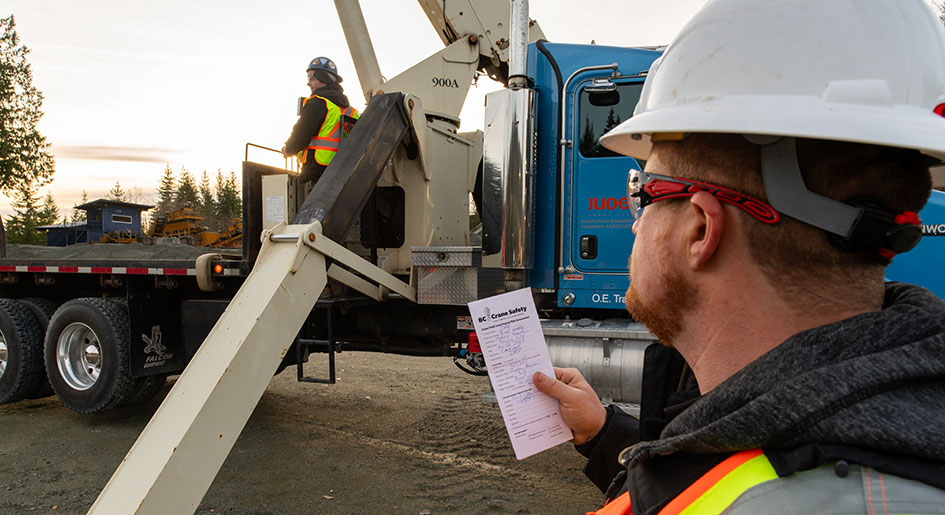Welcoming New Talent to Energize the Crane Industry This Fall
// September 24, 2024
Employing and training provisional crane operators creates renewed enthusiasm in the workplace while developing the skills your team needs to uphold and enhance safety practices and operational standards.
BC Crane Safety supports the development of new crane operators by providing a clear pathway to obtaining provisional certification, which marks the beginning of their careers as crane operators.
Steps to becoming a provisional crane operator:
- Register with BC Crane Safety: Start by completing a quick and free online registration. Once registered, confirm your registration via the verification link sent to your email.
- Choose Your Crane Type: Decide which type of crane you wish to operate—options include boom trucks, mobile cranes and tower cranes—each with specific safety practices and regulatory requirements.
- Find an Employer Sponsor: Secure an employer sponsor who will provide practical training under supervision. This sponsorship is essential for gaining the experience needed to advance in your career.
- Pass the Provisional Designation Test: After securing sponsorship, take and pass the provisional designation test to demonstrate your readiness to begin work under supervision.
Obtaining provisional certification is an exciting journey that allows individuals to operate cranes under supervision while working toward full certification. This process ensures new operators are equipped with the necessary skills to perform their duties safely and effectively.
During the provisional training period, operators demonstrate core crane knowledge (competencies) to earn the provisional certificate based on established Crane Operator Standards. BC Crane Safety maintains the Crane Operator Standards for all crane classifications in British Columbia in accordance with WorkSafeBC regulations.
As new and young workers, provisional operators are at a higher risk in hazardous environments where crane operations are conducted due to their limited experience and potential unfamiliarity with workplace norms and safety protocols.
Employers must pay extra attention to provisional operators.
Provisional Operators:
- Are less likely to recognize hazards in the working environment or have the seasoned judgement to manage unexpected situations.
- May not have yet received adequate training on safety procedures, proper equipment use or emergency protocols.
- May be more prone to taking risks to impress peers or supervisors or because they underestimate the dangers associated with certain tasks.
- May be new to the workplace and may hesitate to ask questions, report unsafe conditions, or may take on tasks even when they believe the tasks are dangerous, out of fear of appearing incompetent or losing their jobs.
As with a new driver with a learner’s license, provisional operators require supervision for their entire training period until they achieve their Full Scope Certification.
The Importance of Employer Support
Provisional operators, particularly young or new workers, face higher risks due to limited experience and familiarity with safety protocols. Employers play a critical role in mitigating these risks by providing:
Comprehensive Training: Providing tailored training programs focused on safety, crane or rigging use, and specific workplace hazards.
Mentorship and Supervision: Pairing new operators with experienced mentors and ensuring close supervision during their training.
Regular Evaluations: Conducting frequent assessments and giving constructive feedback to address any gaps in knowledge or skills.
Clear Communication of Safety Protocols: Ensuring all safety procedures are thoroughly understood, with regular briefings and toolbox talks.
Encourage Safety Awareness: Fostering a culture in which provisional operators feel comfortable reporting safety concerns and asking questions.
Employers Must Provide Appropriate Supervision
Supervision is a key component of the training process, particularly for those holding a provisional certification. In BC, crane operators under provisional status must work under supervision, which can be either direct or indirect.
Direct Supervision: The supervisor is physically present at the worksite, within visual and auditory range, ready to provide immediate feedback and guidance. Direct supervision is crucial during the initial stages of training, especially during complex or high-risk operations.
Indirect Supervision: As trainees gain experience and confidence, they may transition to indirect supervision. This means the supervisor is not physically present but remains available for consultation through periodic check-ins or remote monitoring. Indirect supervision is typically reserved for more routine tasks where the trainee has demonstrated competence.
However, regulation requires that any critical lifts conducted by provisional operators must be under direct supervision.
Check out BC Crane Safety guidance on the supervision requirements for crane operators for more information.
Continuous Learning and Development Support: Employers can further support new operators by fostering continuous learning through regular feedback and additional training opportunities, ensuring that these operators excel in their roles and contribute to overall safety and efficiency.
The influx of fresh talent each fall is vital for the crane industry’s growth and innovation in British Columbia. By obtaining provisional certification and receiving the necessary support, new crane operators are well-positioned to thrive in their careers.
Additional resources to assist applicants, workers, and safety professionals in understanding the certification process are underway. Stay tuned for updates from BC Crane Safety.
Do you have any questions? Please contact BC Crane Safety.





